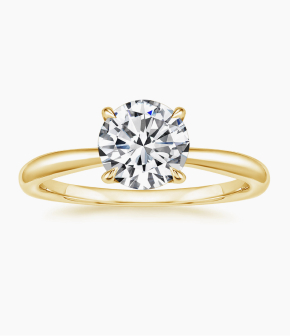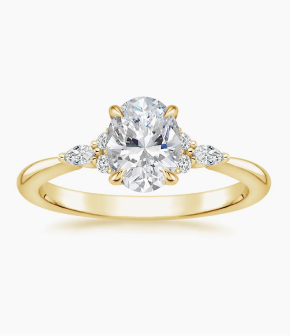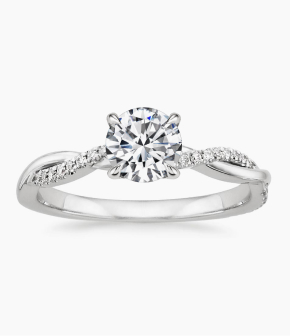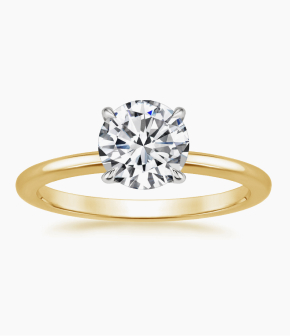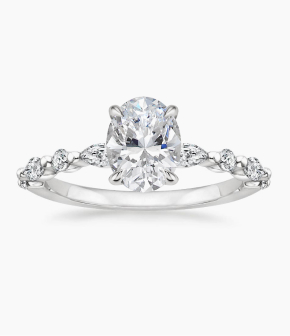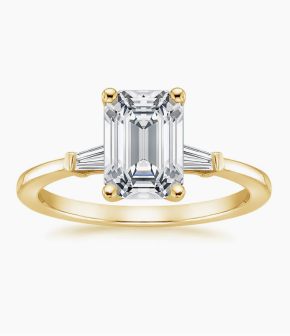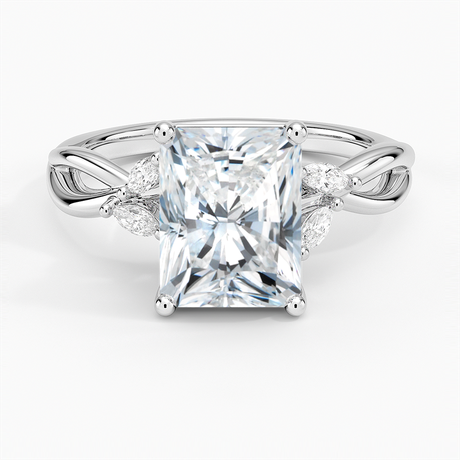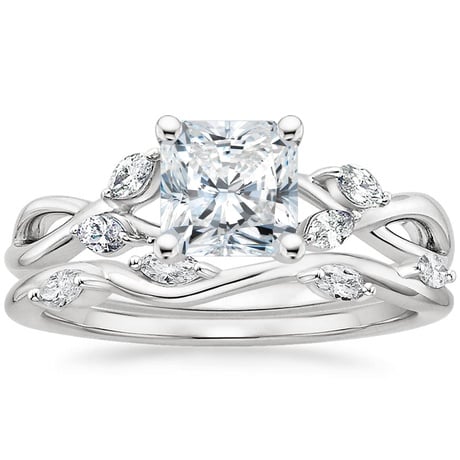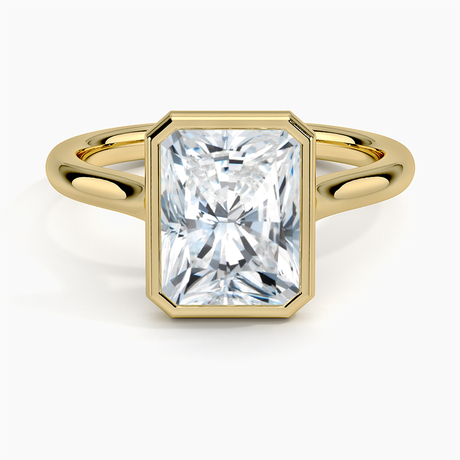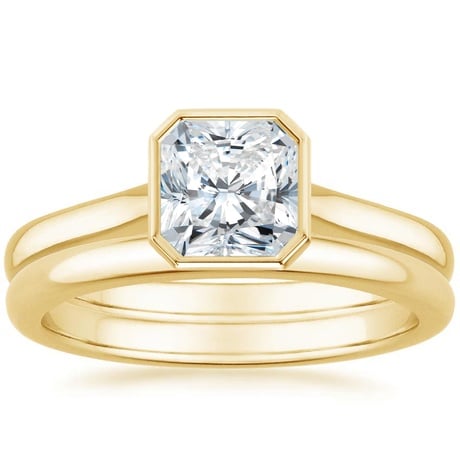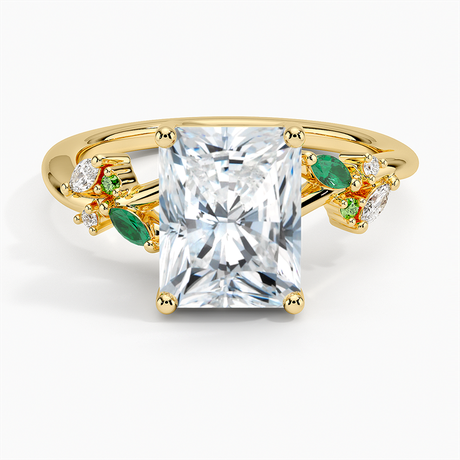Radiant cut engagement rings are classic-with-a-twist choices to celebrate an engagement. Instead of the traditional curves typically associated with diamonds used in engagement ring styles, radiant cut diamonds feature a rectangular shape with curved tips. Radiant diamonds come in wide-ranging grades of cut, color, and clarity (alongside carat these categories comprise the famous 4 Cs), allowing for variation and a lot of options.
Once you've selected the right stone, the perfect radiant cut engagement rings must have a carefully selected engagement ring setting. Pavé bands with diamonds that wrap half of the way around the band are the most popular choice for radiant cut diamond rings, but the options are limitless – choose a setting that fits you and your partner's style and reflects the uniqueness of your love story.













